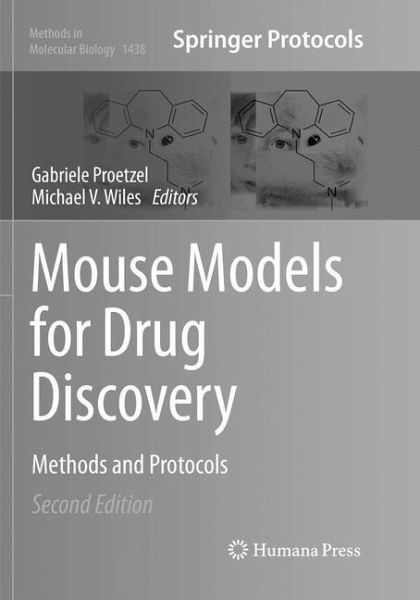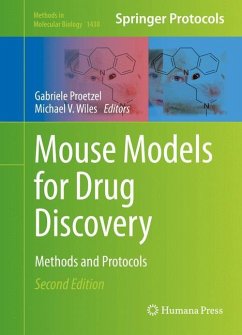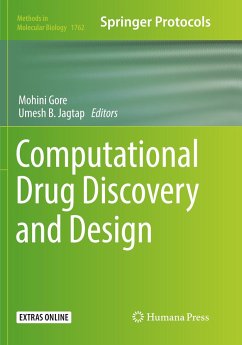
Mouse Models for Drug Discovery
Methods and Protocols
Herausgegeben: Proetzel, Gabriele; Wiles, Michael V.
Versandkostenfrei!
Versandfertig in 6-10 Tagen
83,99 €
inkl. MwSt.

PAYBACK Punkte
42 °P sammeln!
With genetic engineering, systems explored in this book now exist allowingfor the simple, efficient, and near universally precise genetic manipulationdirectly in any organism, including the mouse. Herein, these models are appliedto a wide field of disease areas, including diabetes, cardiovascular disease,skin disorders, cancer, neurodegenerative and neuromuscular diseases, retinaldisorders, as well as various behavioral models. Written for the highlysuccessful Methods in Molecular Biologyseries, chapters include introductions to their respective topics, lists of thenecessary materials and reag...
With genetic engineering, systems explored in this book now exist allowingfor the simple, efficient, and near universally precise genetic manipulationdirectly in any organism, including the mouse. Herein, these models are appliedto a wide field of disease areas, including diabetes, cardiovascular disease,skin disorders, cancer, neurodegenerative and neuromuscular diseases, retinaldisorders, as well as various behavioral models. Written for the highlysuccessful Methods in Molecular Biologyseries, chapters include introductions to their respective topics, lists of thenecessary materials and reagents, step-by-step, readily reproducible laboratoryprotocols, and tips on troubleshooting and avoiding known pitfalls.
Practicaland fully updated, Mouse Models for DrugDiscovery: Methods and Protocols, Second Edition serves to equip the reader with an extensive overviewof techniques to utilize the many possibilities of mice in the drug developmentprocess.
Practicaland fully updated, Mouse Models for DrugDiscovery: Methods and Protocols, Second Edition serves to equip the reader with an extensive overviewof techniques to utilize the many possibilities of mice in the drug developmentprocess.












